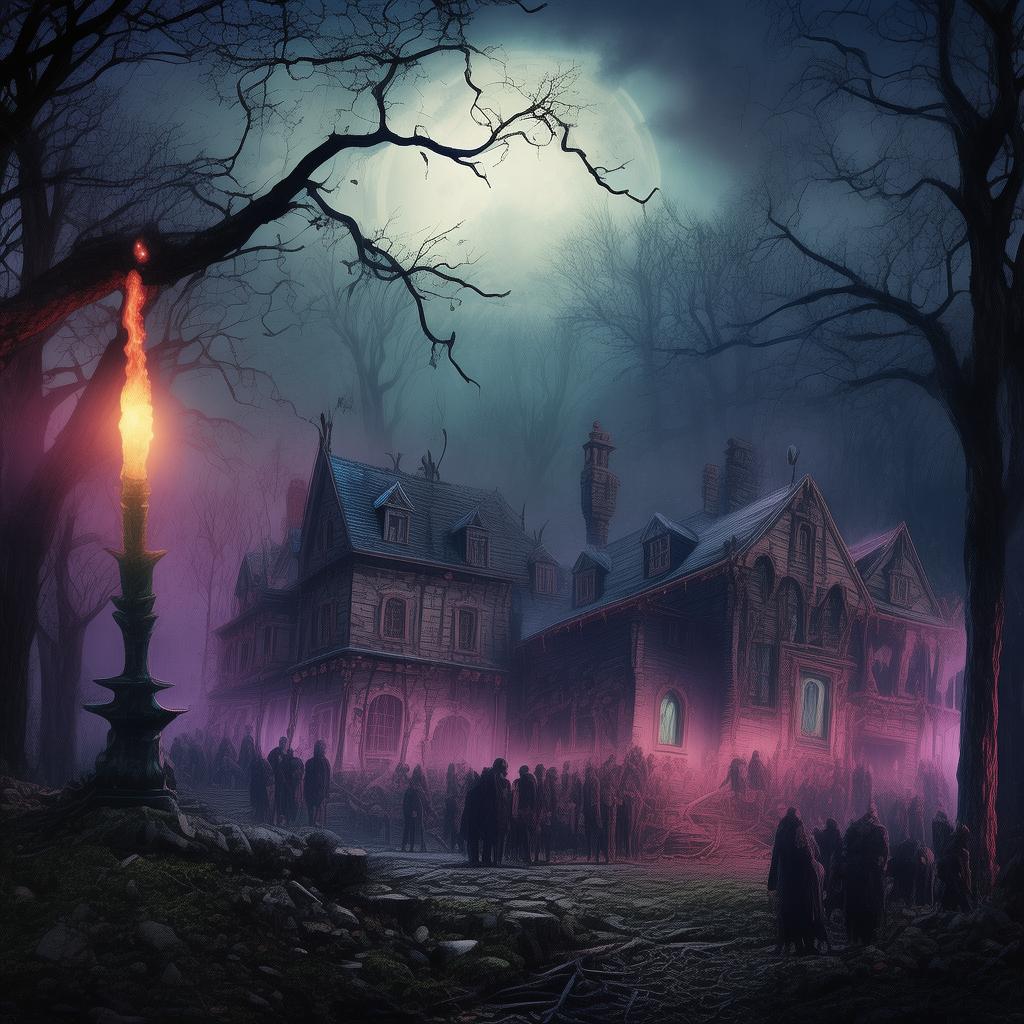Whispers of the Forgotten: The Christmas Carol's Ghostly Guardian
The night was as silent as the grave, a blanket of snow that blanketed the cobblestone streets of Victorian London. In a dimly lit study, an author named Edward Wren sat hunched over his desk, the flickering candle casting long shadows. He was a man of solitude, his mind often lost in the labyrinth of his own imagination. Edward had a peculiar hobby, one that set him apart from his contemporaries; he sought out the forgotten, the stories that no one else dared to tell.
One cold December evening, while sorting through a collection of old books in his attic, Edward stumbled upon a tattered manuscript. The cover was worn, the edges frayed, and the title, “The Christmas Carol’s Ghostly Guardian,” whispered a haunting promise. Intrigued, he pulled it from the stack, the pages yellowed with age, and began to read.
The story began with the tale of a man named Charles Dickens, a renowned author who had penned the beloved Christmas Carol. But this was not the tale of Scrooge and the three spirits; this was a darker narrative, one that delved into the shadows of Dickens’s own life. It spoke of a secret that had haunted him for years, a ghostly guardian that had appeared to him in his darkest moments.
The manuscript recounted the events of a fateful Christmas Eve, where Dickens found himself at a lavish party hosted by a wealthy nobleman. Amidst the laughter and merriment, a ghostly figure materialized, a spirit of a man who had been wronged by the same nobleman many years ago. The ghost’s eyes were hollow with sorrow, his voice a whisper of a plea for justice.
The nobleman, feeling the chill of the presence, offered the ghost a deal: if the spirit would leave him be, he would rectify the wrongs done to the man’s family. The ghost, however, was not interested in revenge; he sought only peace. He revealed a secret that would change the course of history, a hidden truth that the nobleman had been complicit in.
The ghost’s tale was a harrowing one, filled with betrayal and tragedy. It spoke of a family torn apart, a son lost to the sea, and a daughter forced into a life of hardship. The nobleman, guilt-ridden, promised to right the wrongs and to honor the memory of the man whose spirit had haunted him.
As Edward read on, the manuscript began to take on a life of its own. The ghostly guardian, it seemed, was not just a story; it was a warning. The nobleman, despite his promises, failed to honor his word, and the spirit was doomed to wander the earth, a ghostly guardian of the forgotten.
Edward’s heart raced as he read of the nobleman’s descent into madness, driven by his own guilt and the specter that would not release him. The story took a turn when the ghostly guardian revealed that it had been following Edward for years, a spirit that felt a kinship with the author’s own quest for the truth.
The manuscript detailed how Edward’s own ancestors had been involved in a similar tale of betrayal and injustice. It spoke of a hidden letter, a letter that could change everything. Edward was the only one who could uncover the truth, the only one who could free the ghostly guardian from its eternal wandering.
As the story reached its climax, Edward found himself at the nobleman’s ancestral estate, a place that felt all too familiar. There, amidst the grand halls and dark corridors, he discovered the hidden letter. It spoke of a long-lost family member, a descendant of the nobleman who had been the spirit’s original guardian.

In a twist of fate, Edward realized that he was the descendant, the one who could close the loop and allow the spirit to finally rest. With the letter in hand, he retraced the steps of the ghostly guardian, revealing the truth to the descendants of the nobleman.
As the final page of the manuscript was turned, Edward felt a chill run down his spine. The ghostly guardian, now freed from its burden, seemed to fade into the night. Edward, standing in the estate’s grand library, looked around at the empty room and felt a profound sense of closure.
The next morning, Edward awoke with a start, the manuscript still in his hand. He realized that the ghostly guardian had not truly left him; it had been a lesson, a reminder of the power of truth and redemption. The story of the Christmas Carol’s Ghostly Guardian had not just captivated him; it had changed him.
Edward set out to uncover the hidden stories of his own ancestors, to right the wrongs that had been passed down through generations. He became a chronicler of the forgotten, a ghostly guardian of his own, ensuring that no story of injustice or betrayal would be left untold.
In the end, Edward’s journey was not just about uncovering the past; it was about embracing the present and the future. The Christmas Carol’s Ghostly Guardian had not only haunted him; it had become a part of him, a reminder that the power to change the world lies within each of us, if only we are brave enough to face the shadows.
✨ Original Statement ✨
All articles published on this website (including but not limited to text, images, videos, and other content) are original or authorized for reposting and are protected by relevant laws. Without the explicit written permission of this website, no individual or organization may copy, modify, repost, or use the content for commercial purposes.
If you need to quote or cooperate, please contact this site for authorization. We reserve the right to pursue legal responsibility for any unauthorized use.
Hereby declared.









